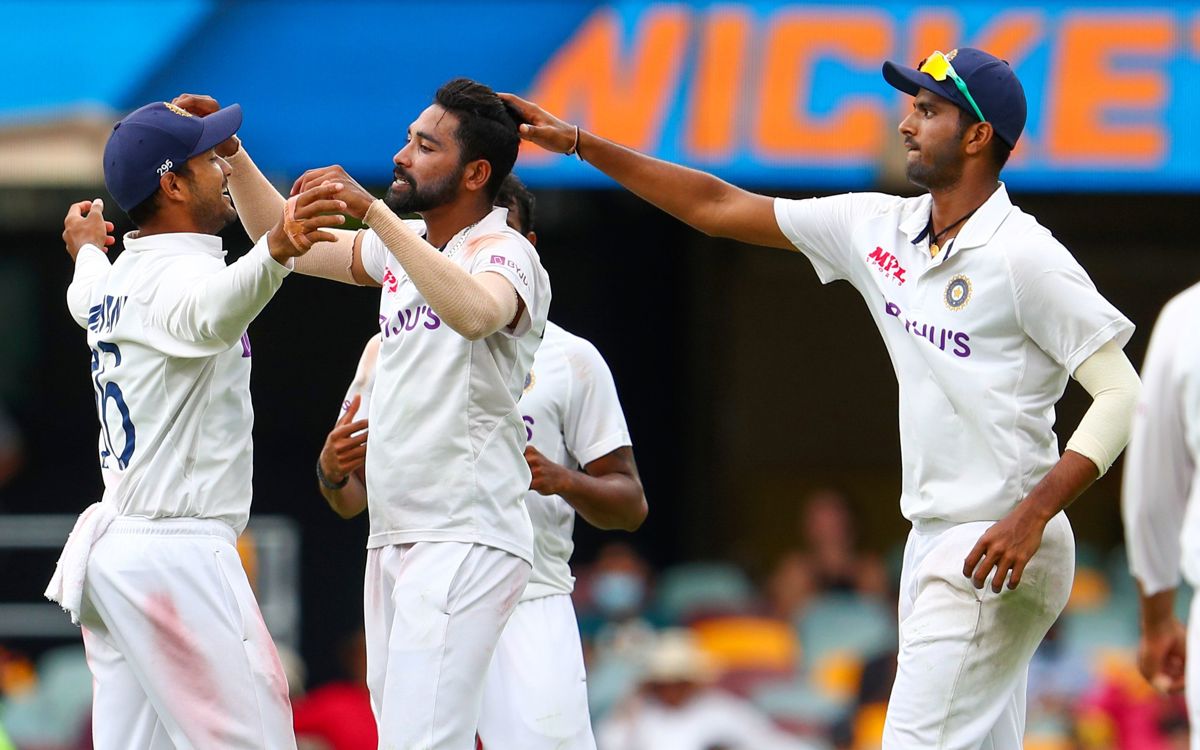How the Indian cricket team gave the nation a vision of harmony. By Boria Majumdar, UPES Dehradun, India

How the Indian cricket team gave the nation a vision of harmony.
By Boria Majumdar, UPES Dehradun, India
In early February 2021, Indian cricket was rocked by a very unfortunate case of supposed religious division. Wasim Jaffer, one of India’s most decorated cricketers who has played 31 Test matches and scored two double hundreds for the country, was accused of favouring Muslim players for selection and fracturing his Uttarakhand team across religious lines.
The accusations, which were never substantiated, were strongly refuted by Jaffer who fought the whole vilification attempt with admirable conviction. But the damage was done. Indian cricket – the country’s only secular religion – had been scarred. Wasim Jaffer quit his job and returned to Mumbai and, though the issue petered out after a while, it left us all disturbed and uncomfortable. That someone as decorated as Jaffer could be a target of anti-Muslim sentiment suggests a dangerous trend that cricket needs to take stock of.
But in many ways, the current Indian team is perhaps the best hope we have to stand up to our vision of a secular, liberal, and tolerant India. I have watched and studied Indian cricket for a living. And needless to say it is a rich history. We started playing international cricket in 1932 and have had many incredible moments in the years gone by. While none can possibly top the Indian takeover of Lord’s in 1983, there was one moment at the Brisbane Test in early 2021 that will forever remain a perfect picture postcard for India: when the young cricketer Mohammed Siraj was handed the Indian flag by his teammates and led a victory parade around the Gabba, his entire team marching behind him and thousands of Indian supporters cheering their newfound hero.
In this one instant, Siraj ceased to be a Muslim or a Hindu. He was Indian. A young man from Hyderabad who had just lost his father but was unable to be with his family because of the pandemic. A young man bringing smiles to a billion faces, as his illustrious teammates cheered him on. This was the India of our dreams turning into a reality. Not the toxic India that plays out every day on national television. Not the divisive India that plays into the hands of politicians. Not the India deeply divided by privilege and underprivilege. This was an India of hope and an India that dares to dream.
Siraj isn’t the most eloquent. He need not be. What he is and will be is what our country is all about. Hard work and more hard work with dignity and integrity. Siraj had braved all odds and achieved so much. But credit must also go to the entire team for standing by him and giving us this picture postcard of unity. As Shardul Thakur, who had also performed superbly, said to me: ‘Many thought there was a competition on between Siraj and myself to pick up five wickets. But in my heart, I wanted him to get his maiden five-wicket haul for he had been through a lot. His late father would be happy if he did.’

Let me put a few things on record. Siraj had lost his father during the statutory 14 days of hard quarantine in Australia in November 2020. Cops were positioned outside every room, just in case the Indians tried to violate quarantine protocol. He couldn’t see his family and none of his teammates could go to his room to give the grieving young man a shoulder to cry on. Concerned that Siraj might do something drastic or damaging to himself, his teammates were on video calls with him all day, coming together to stand by and support him.
Siraj broke down on multiple occasions, which is only natural. But he never gave up. He was steadfast and resolute. He wanted to fulfil his father’s wish of doing his best for India and, when the opportunity came his way at Melbourne Cricket Ground on the huge occasion of the Boxing Day Test, he just did not want to let it go. In fact, he said to us that he was berating himself for failing and coaxed himself to push harder.
13 wickets later and Siraj would become India’s highest wicket taker in the Test series. It was only fitting that his teammates handed him the tricolour during the team’s victory march. He was so much more than a cricketer. He was a young boy who had mourned and become a man in the course of those two months in Australia. He was responsible for fighting on for a billion people ravaged by Covid. He shouldered on and emerged a winner. Good things indeed happen to good people and good men do come first in the end.
This is what it is all about. The Indian cricket team is a celebration of the human values of dignity and respect, and champions the cause of a liberal, secular, and tolerant India. Yes, it continues to give us hope and that’s all that matters. And that’s our life lesson from sport, which is one of the greatest unifiers of our time.
Dr Boria Majumdar is Distinguished Visiting Professor in the School of Modern Media at UPES Dehradun in India. He is also General Editor of Sport in the Global Society – Contemporary Perspectives and Executive Editor of Sport in Society and Soccer and Society, all published by Routledge.
Image by Tertius Pickard/AP/Shutterstock
All content published by The ACU Review is copyright of the Association of Commonwealth Universities or its licensors and may not be reproduced without written permission from the Association of Commonwealth Universities. Please contact review@acu.ac.uk with enquiries.
